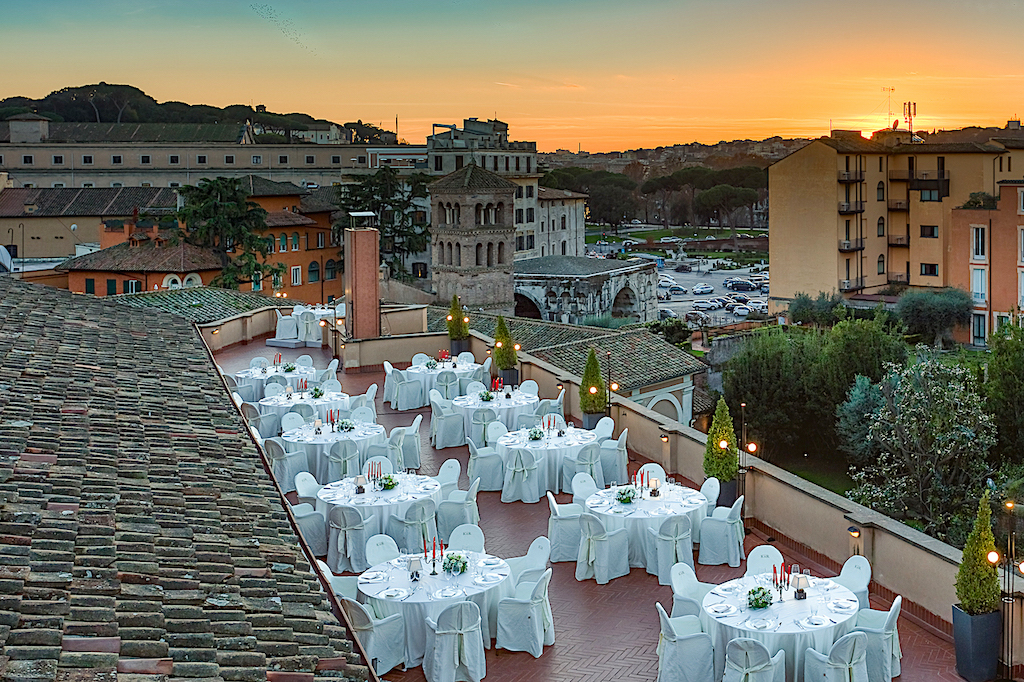
Rome Seminary Site Renovated With a Hotel To Help Finance Franciscan Formation
MELVILLE, New York — In 1917, during the tumult of World War I, a Polish Franciscan friar studying in Rome witnessed anti-Catholic protests threatening the pope and the Church.
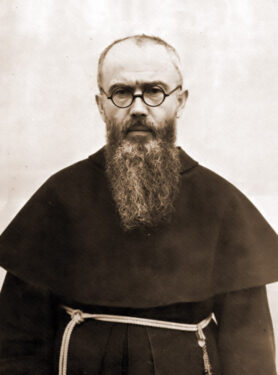
In response, the friar, Father Maximilian Kolbe, gathered with a half dozen fellow students at their monastery, which is now part of the International College of the Conventual Franciscans in Rome. In a study room routinely used by Father Kolbe, they formed an international prayer movement — the Knights of the Immaculata.
Their mission: pray for protection of the Church.
That study room at the monastery, built in the 1620s, is now part of a museum dedicated to St. Maximilian Kolbe, the martyred priest and hero of the Auschwitz death camp during World War II.
The museum is the centerpiece of the Kolbe Hotel Rome — a business undertaking at the college to help finance the formation of Conventual Franciscan priests.
Peter Bahou, president and owner of Peter’s Way Tours in Melville, Long Island, is a shareholder and the hotel’s original developer.
“We even do wedding ceremonies now,” Bahou said. “It is magnificent.”
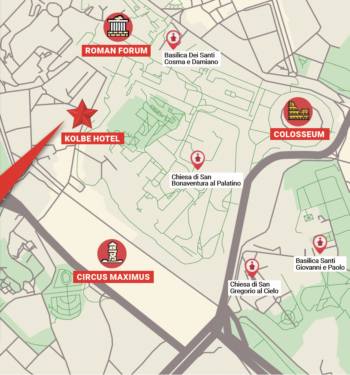
The hotel opened for business in 2012 and has since become a four-star hotel winning several accolades, including a recent World Luxury Hotel Award.
Bahou described how Conventual Franciscans asked him to help develop a new revenue stream by converting part of the monastery into luxury lodgings.
The Franciscans are getting 25% of the gross income, Bahou said.
Bahou, born in Jaffa, Israel, said he had no experience in hotel construction or hospitality management when the project began, but he did have an acute knowledge of the lodging requirements of people on pilgrimages.
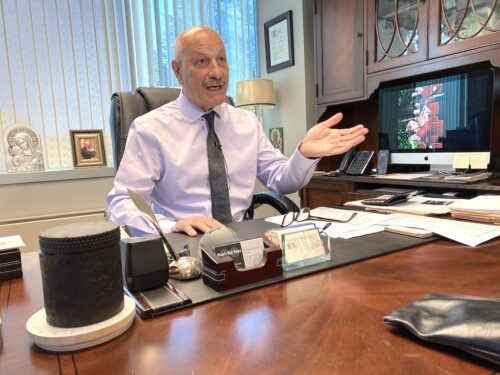
He has operated Peter’s Way Tours for 40 years, serving dioceses throughout the U.S. and Canada that want to send parishioners or choirs to perform at holy venues or attend pilgrimages like World Youth Day.
Bahou explained that the old monastery and the hotel are one building, but the living areas for about 30 friars are walled off from the 75 rooms reserved for lodging.
The “icing on the cake,” Bahou said, is the museum dedicated to St. Kolbe, which features expansive displays of his life, including relics, and the habit he wore during his time in Rome.
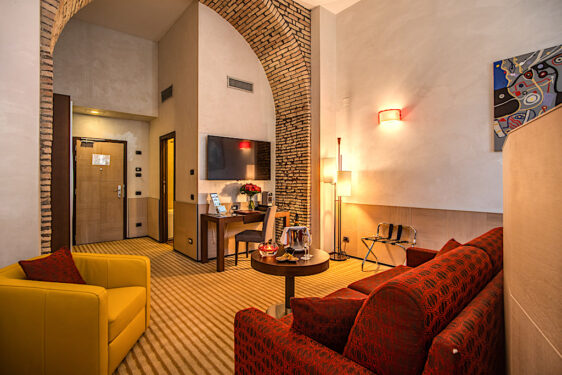
General Manager Carlo Izzo, a Franciscan brother, said guests visiting the convent area are accompanied by a friar who shares the martyred priest’s story.
Brother Izzo said friars are happy to show the museum, and places where the saint studied and slept.
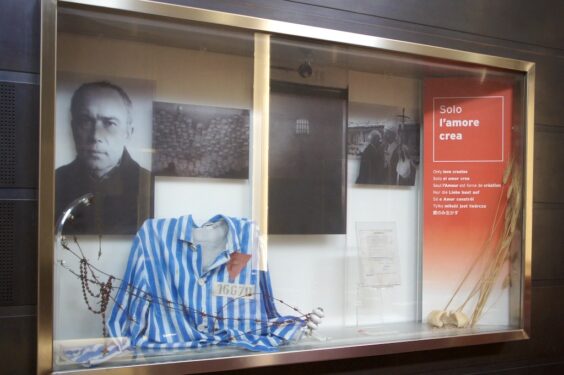
Furthermore, Brother Izzo said, the friars celebrate Mass every morning and hotel guests can participate. “This is greatly appreciated,” he said.
Pilgrims also experience “the magical atmosphere of being able to walk in the magnificent internal garden where St. Maximilian Kolbe lived,” Brother Izzo said.
A frequent guest is a priest from the Diocese of Brooklyn, Msgr. Peter Vaccari. He is the president of Catholic Near East Welfare Association (CNEWA) and a former rector at St. Joseph Seminary and College, Dunwoodie, Yonkers.
Last April, he led a delegation to Rome for the reopening of a CNEWA office in the Dicastery for the Oriental Churches.
The group stayed at the Kolbe Hotel. While there, CNEWA also hosted a reception and dinner to honor Bishop Emeritus William Murphy of Rockville Centre with CNEWA’s Faith and Culture Award.
Bishop Murphy has been a long-time member of CNEWA’s Board of Trustees. Among the attendees were Cardinal Timothy Dolan and Auxiliary Bishop James Massa, now the rector at Dunwoodie.
Msgr. Vaccari said the hotel’s “location is ideal for visiting the venerable ruins of ancient Rome as well as its proximity to Vatican City.”

